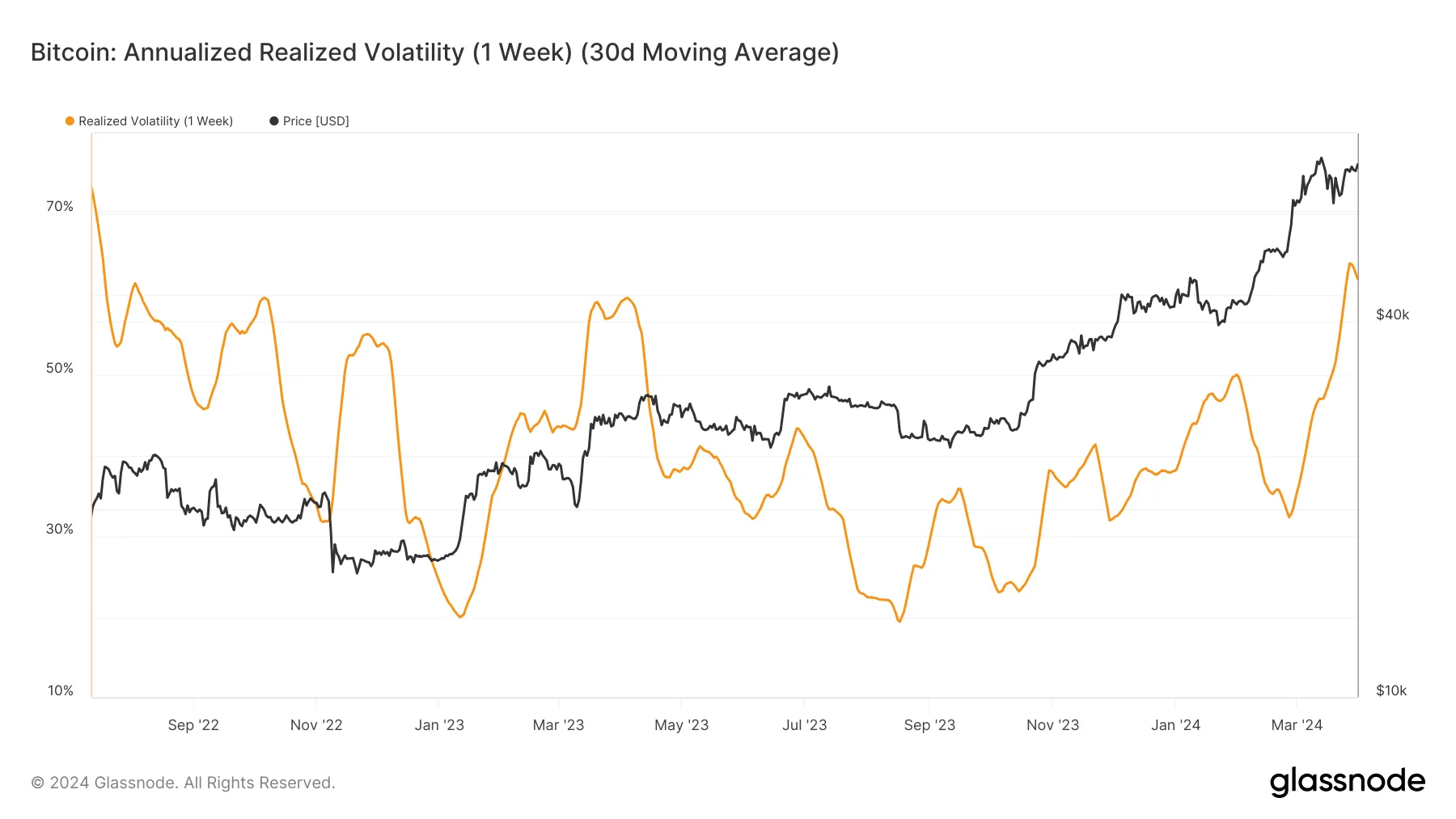We do the research, you get the alpha!

$68,468.00
5.38%$2,073.66
9.73%$1.59
25.68%$1.45
6.67%$629.00
6.14%$0.9999
-0.00%$87.79
8.04%$0.287091
0.28%$0.100315
8.93%$1.031
-0.25%$51.15
5.48%$0.296057
12.04%$504.14
2.00%$0.999894
-0.04%$8.78
0.34%$28.24
4.69%$9.32
10.78%$350.42
5.60%$0.168746
5.53%$0.999269
-0.04%$0.163556
7.85%$0.999311
-0.02%$0.00952165
1.92%$0.102396
6.25%$56.58
8.13%$0.999943
-0.08%$251.17
5.79%$9.44
11.02%$0.958008
10.06%$0.00000619
4.46%$0.078254
4.07%$1.29
0.32%$0.114121
-0.05%$5,169.28
-0.10%$4.01
15.38%$5,204.92
-0.07%$1.34
-6.64%$0.610908
2.44%$1.00
0.00%$1.12
-0.00%$116.09
-0.43%$183.85
6.87%$0.997426
-0.01%$0.705989
1.23%$0.00000408
3.37%$77.99
4.32%$1.00
0.03%$0.069989
4.69%$0.170051
3.74%$2.25
1.42%$0.999783
-0.02%$0.00000163
-1.13%$1.15
16.27%$9.10
8.75%$0.273239
8.61%$2.41
10.57%$0.9991
-0.04%$0.112595
-0.18%$0.409734
5.40%$11.00
0.01%$8.67
2.57%$7.11
3.80%$0.00183867
7.31%$0.060148
5.73%$0.01752327
1.06%$1.94
-5.01%$64.03
0.44%$0.109675
9.51%$0.853869
2.31%$0.03124167
6.91%$0.999883
-0.05%$0.00975995
4.53%$3.50
3.32%$0.090454
6.77%$1.24
0.19%$1.006
12.08%$1.46
6.72%$1.00
0.05%$114.41
0.01%$0.754773
-6.49%$0.958367
14.04%$1.027
0.00%$1.12
1.12%$0.03483886
5.20%$1.86
6.59%$0.00775346
8.17%$0.080709
0.72%$0.03351058
17.59%$0.100664
9.14%$1.096
0.01%$0.998015
0.06%$0.160514
9.58%$0.00000637
9.12%$1.00
0.03%$0.286789
8.27%$29.27
4.56%$0.01283116
0.00%$0.999451
0.03%$0.263465
8.50%$0.070986
5.74%$1.087
0.08%$1.18
0.21%$0.999858
-0.00%$0.695725
6.26%$0.00717028
9.08%$35.46
7.54%$1.32
7.93%$0.393945
5.94%$0.0465804
1.18%$166.93
-0.13%$0.528892
4.03%$1.00
0.03%$0.166136
7.99%$0.251687
7.73%$0.085394
7.51%$1.48
3.64%$1.038
2.15%$0.384483
17.42%$0.03441127
2.90%$0.999839
-0.00%$130.48
6.80%$1.019
-0.10%$0.00000034
2.98%$0.057241
5.87%$0.00000033
0.32%$16.36
2.21%$3.23
3.33%$1.57
6.41%$0.01628212
-1.20%$3.21
1.75%$0.05311
2.48%$0.344316
12.39%$0.070241
6.08%$0.322713
10.76%$0.02736958
4.80%$0.0059384
4.47%$1.002
0.36%$0.00003003
6.09%$0.391565
6.23%$0.324471
7.30%$17.56
3.10%$0.234303
6.61%$0.982531
-0.76%$0.076937
3.86%$1.42
1.82%$0.05126
3.63%$0.124555
5.14%$1.60
-0.54%$0.00269855
5.57%$6.52
7.12%$0.136672
-2.56%$0.00246579
-0.58%$0.04441555
6.62%$0.02228285
9.58%$0.086466
8.58%$0.998555
-0.08%$1.34
4.15%$0.100443
15.11%$1.79
6.30%$0.999997
-0.00%$0.98857
0.02%$0.999886
0.00%$1.30
5.16%$1.075
0.01%$0.213425
9.76%$0.00215805
4.07%$0.502204
-0.54%$22.79
0.00%$0.00000098
2.10%$1.006
34.66%$5,268.48
-0.87%$0.097427
-1.80%$2.81
6.90%$0.00003622
2.99%$0.19718
8.45%$0.054103
4.58%$0.859883
11.18%$0.195875
-0.28%$0.098759
9.28%$9.57
3.52%$1.00
0.00%$0.18839
7.08%$0.079283
-0.48%$0.02005697
0.35%$0.00493061
4.24%$4.07
11.98%$1.00
0.00%$0.00379481
9.47%$18.47
2.51%$1.92
6.85%$0.116334
-2.52%$0.055309
7.98%$0.999639
-0.08%$0.172604
12.77%$2.15
7.77%$0.626645
4.76%$3.56
6.17%$1.81
0.74%$0.02316161
-4.99%$2.05
0.85%$0.02001277
-0.78%$48.00
0.02%$0.04205454
6.57%$0.00000793
4.78%$0.994799
-0.08%$1.26
0.21%$0.338014
7.92%$0.999061
-0.05%$0.148512
0.11%$0.99875
0.06%$0.415554
5.74%$0.171234
4.93%$1.012
-0.21%$0.304515
0.35%$0.648764
0.35%$0.096541
7.56%$0.627938
6.01%$4.57
5.12%$0.082572
3.02%$0.13525
8.22%$0.263443
4.19%$0.131944
4.06%$1,096.63
-0.12%$0.074178
-1.94%$0.079814
8.31%$11.67
4.69%$0.313609
-1.68%$0.287925
1.26%$0.0014941
3.50%$0.363828
0.83%$0.25373
0.84%$0.222336
3.23%$0.131534
0.20%$0.00402152
1.64%$0.02145026
-11.77%$0.202239
5.58%$1.001
0.00%$2.36
3.40%$1.48
3.43%$12.12
7.35%$0.340526
2.69%$1.74
-7.38%$0.999807
-0.02%$1.063
0.03%$0.996017
0.08%$0.999643
0.00%$0.04431872
1.68%$0.999102
-0.05%
The price of Bitcoin slipped below $70,000 early Monday morning, as volatility increased ahead of this month's much-anticipated block reward halving.
Bitcoin is currently down 1.1% on the day, trading at around $69,565, per data from CoinGecko, though it remains up almost 4% on the week.
With the Bitcoin halving set to take place on or around April 20, one measure for tracking the cryptocurrency's volatility has jumped in recent days.
Bitcoin's 30-day annualized realized volatility hit a high of 63.76% last week, and remained over 60% by the close of the week, per data from Glassnode—its highest level since August 2022. Realized volatility tracks the standard deviation in returns from the mean over a set period, with higher values reflecting increased price risk over that period.

Late last month, Beam CEO Andy Bromberg told Decrypt that Bitcoin's recent volatility reflects a "crisis of faith" among traders ahead of the block reward halving.
Taking place every four years, the Bitcoin halving sees the block reward allocated to miners slashed in half as a means of controlling the distribution of its fixed 21 million supply. The 2024 halving will see mining rewards drop from 6.25 BTC to 3.125 BTC.
While historically, each Bitcoin halving has been followed by a surge in the cryptocurrency's price, some analysts have cautioned that it may be priced in. A recent report from Coinbase, meanwhile, pointed out that previous price rallies also correlated with wider macro events such as the coronavirus pandemic and lockdown, resulting in "extraordinarily loose monetary policy and historically strong fiscal stimulus."
The 2024 halving is also atypical because Bitcoin's price hit an all-time high ahead of the halving, propelled by the approval of multiple U.S. spot Bitcoin ETFs in January. With the ETFs scooping up Bitcoin from the market, and the halving set to slash the supply of new Bitcoin, the result could be a supply crunch—which some analysts point to as a bullish indicator as the halving approaches.




